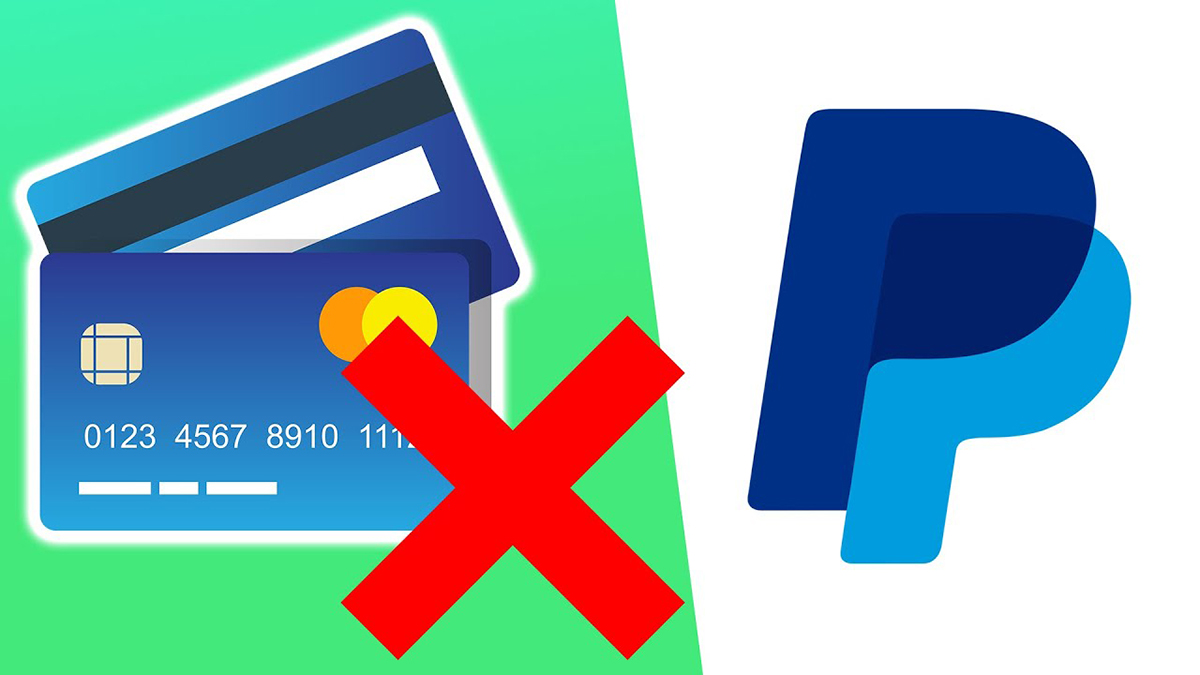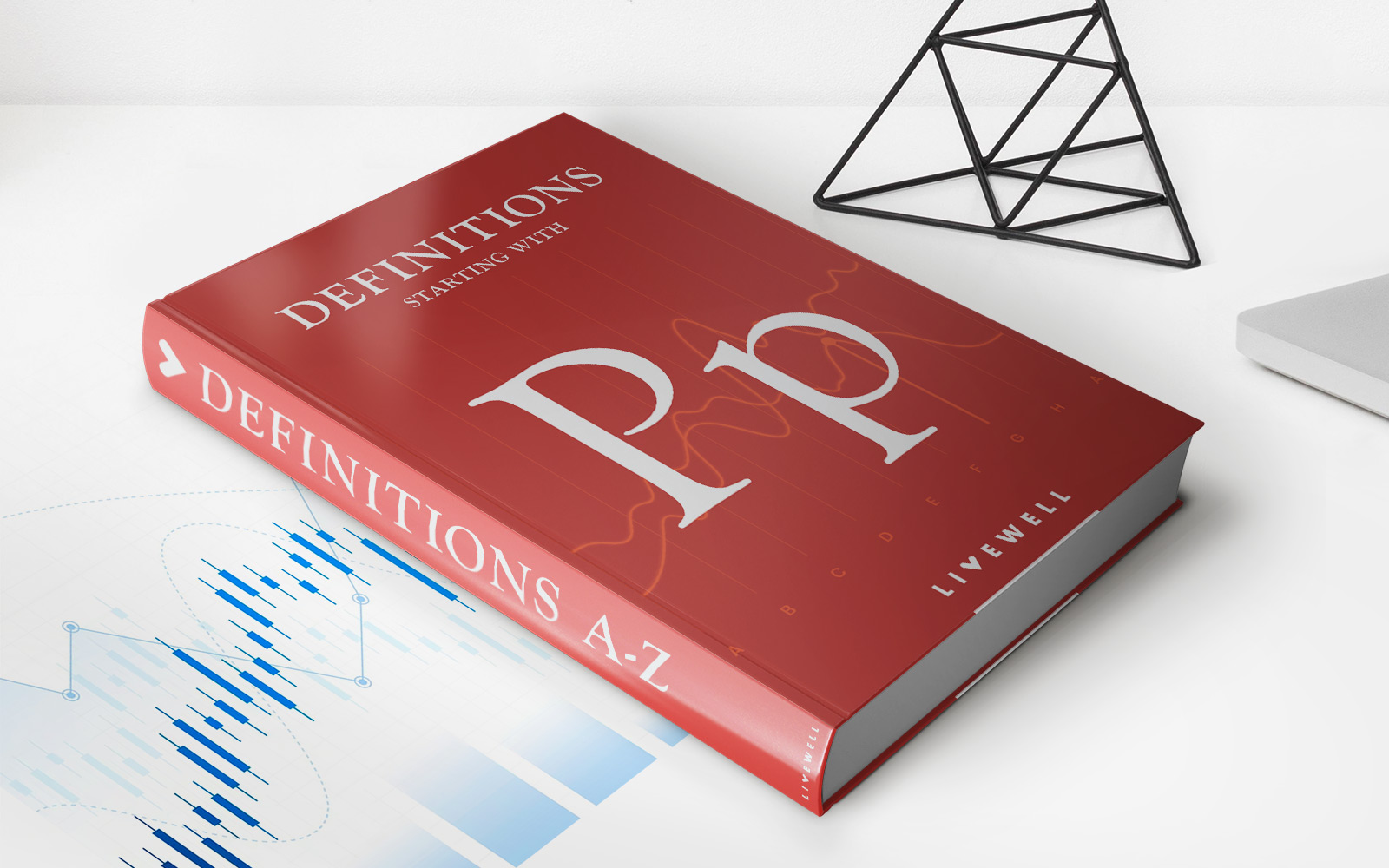

Finance
How To Boost Credit Score Without Credit Card
Published: October 22, 2023
Boost your credit score without a credit card! Learn effective strategies and tips for improving your credit score. Take control of your finances and achieve your financial goals.
(Many of the links in this article redirect to a specific reviewed product. Your purchase of these products through affiliate links helps to generate commission for LiveWell, at no extra cost. Learn more)
Table of Contents
- Introduction
- Understanding Credit Scores
- Importance of a Good Credit Score
- Factors that Affect Credit Scores
- Ways to Boost Credit Score without a Credit Card
- Paying Bills on Time
- Reducing Credit Utilization
- Building a Positive Payment History
- Diversifying Credit Mix
- Correcting Errors on Credit Reports
- Becoming an Authorized User
- Using Alternative Credit Products
- Tips for Successfully Boosting Credit Scores
- Conclusion
Introduction
Your credit score plays a crucial role in your financial life. Whether you’re applying for a loan, renting an apartment, or even securing a job, your credit score can greatly impact the opportunities available to you. Many people believe that having a credit card is essential for building and improving their credit score. However, this is not entirely true.
Contrary to popular belief, it is possible to boost your credit score without having a credit card. In this article, we will explore various strategies you can employ to improve your credit score, even if you don’t have a credit card. By understanding these methods, you can take steps towards financial success and open doors for better financial opportunities.
Understanding your credit score is the first step towards improving it. Credit scores are numerical representations of an individual’s creditworthiness. They are determined by assessing various factors such as payment history, credit utilization, length of credit history, credit mix, and new credit inquiries. Lenders and financial institutions use these scores to determine the risk associated with lending money to an individual.
In today’s society, having a good credit score is essential. It not only allows you to qualify for better interest rates and loan terms but also affects your ability to secure housing, insurance, and even employment. Therefore, taking steps to improve your credit score is a wise financial move, regardless of whether you have a credit card or not.
In this article, we will discuss some effective strategies to boost your credit score without relying on a credit card. By implementing these techniques and making smart financial decisions, you can actively work towards improving your creditworthiness and gaining better control over your financial future.
Understanding Credit Scores
Credit scores are numerical representations of an individual’s creditworthiness. They serve as a tool that lenders use to assess the risk associated with lending money to a particular person. In the United States, the most commonly used credit scoring model is the FICO score, which ranges from 300 to 850.
Understanding how credit scores are calculated can help you navigate the world of credit and make informed financial decisions. The factors that contribute to your credit score include:
- Payment History: This is the most influential factor in determining your credit score. It takes into account whether you have paid your bills on time, the presence of any late payments or defaults, and the severity of any delinquencies.
- Credit Utilization: This refers to the amount of credit you have used compared to your total available credit. Keeping your credit utilization below 30% is generally recommended.
- Length of Credit History: The length of time you have held credit accounts can impact your credit score. A longer credit history generally indicates a more reliable borrower.
- Credit Mix: Lenders like to see a diverse mix of credit types, such as credit cards, auto loans, and mortgages. Having a mix of different types of credit accounts can positively impact your credit score.
- New Credit Inquiries: Opening multiple credit accounts within a short period can raise red flags for lenders. Each time you apply for credit, a hard inquiry is recorded on your credit report, which can slightly lower your score. It is important to be mindful of the number of inquiries you make.
It’s important to note that while these factors contribute to your credit score, the weight given to each factor may vary slightly depending on the credit scoring model being used.
By understanding the components of credit scores, you can start taking steps to improve your score and demonstrate greater creditworthiness. Even without a credit card, you can use other financial products and strategies to positively impact your credit score.
Importance of a Good Credit Score
A good credit score is vital for your financial well-being. It opens doors to better financial opportunities and can save you thousands of dollars in interest payments. Here are some key reasons why having a good credit score is important:
- Access to Loans and Credit: When you have a good credit score, you have a higher chance of being approved for loans, such as mortgages, car loans, and personal loans. Lenders are more likely to offer you favorable interest rates and loan terms if they perceive you as a low credit risk.
- Lower Interest Rates: A good credit score can translate into lower interest rates on loans and credit cards. With a higher credit score, you are seen as less risky and more likely to repay your debts on time. This allows lenders to offer you more favorable interest rates, saving you money in the long run.
- Credit Card and Loan Approval: Whether you’re applying for a credit card or a loan, having a good credit score increases your chances of approval. Lenders are more likely to trust borrowers with a proven track record of responsible credit management.
- Insurance Premiums: Insurance companies often consider credit scores when determining insurance premiums. A good credit score can result in lower premiums for auto, home, and other types of insurance. On the other hand, a poor credit score may lead to higher premiums or even denial of coverage.
- Housing Opportunities: Landlords and property management companies often conduct credit checks when screening potential tenants. With a good credit score, you are more likely to be approved for rental properties and can secure more desirable housing options.
- Employment: Some employers check credit scores as part of the hiring process, especially for positions that involve financial responsibility. A good credit score can give you an advantage over other candidates and increase your chances of getting the job.
Overall, a good credit score is essential for your financial well-being. It not only allows you to access better loan options and lower interest rates but also opens doors to more housing and employment opportunities. By maintaining a good credit score, you can enjoy financial security, save money, and have more control over your financial future.
Factors that Affect Credit Scores
Several factors go into determining your credit score. Understanding these factors can help you make informed decisions to improve your creditworthiness. Here are the key factors that affect credit scores:
- Payment History: Your payment history has the most significant impact on your credit score. Lenders want to see that you consistently make your payments on time. Late payments, defaults, and accounts in collections can significantly lower your credit score.
- Credit Utilization: Credit utilization refers to the percentage of your available credit that you are using. High credit utilization can negatively impact your credit score. It’s recommended to keep your credit utilization below 30% to maintain a good score.
- Length of Credit History: The length of your credit history also plays a role in determining your credit score. A longer credit history demonstrates your ability to manage credit responsibly over time. It’s important to start building credit early and maintain accounts in good standing.
- Credit Mix: Lenders like to see a diverse mix of credit types, such as credit cards, loans, and mortgages. Having a healthy mix of revolving credit (like credit cards) and installment loans (like auto or student loans) can positively impact your credit score.
- New Credit Inquiries: When you apply for new credit, such as a credit card or loan, the lender may perform a hard inquiry on your credit report. Multiple inquiries within a short period can lower your credit score. It’s important to be mindful of the number of inquiries you make.
Each credit scoring model assigns different weights to these factors. For example, the FICO scoring model places the most emphasis on payment history and credit utilization. Other factors, such as length of credit history and credit mix, also play a significant role in determining your credit score.
By understanding these factors, you can adopt habits that positively impact your credit score. Making timely payments, keeping your credit utilization low, and maintaining a diverse credit mix are essential for building and maintaining a good credit score. Additionally, minimizing new credit inquiries and avoiding defaults or collections can help protect your creditworthiness.
It’s worth noting that while these factors influence your credit score, the specific weight and scoring methodology may vary across different credit scoring models. It’s essential to regularly monitor your credit report and take steps to improve areas that may be affecting your score negatively.
Ways to Boost Credit Score without a Credit Card
Contrary to popular belief, you can boost your credit score even if you don’t have a credit card. While credit cards can be useful tools for building credit, there are alternative strategies you can employ to improve your creditworthiness. Here are some effective ways to boost your credit score without a credit card:
- Paying Bills on Time: One of the most crucial factors affecting your credit score is your payment history. Ensure that you pay all your bills, such as utility bills, rent, and loan instalments, on time. Consistently making timely payments demonstrates responsible financial behavior and positively impacts your creditworthiness.
- Reducing Credit Utilization: Even without a credit card, you may have other forms of credit, such as a personal loan or a car loan. Aim to keep your credit utilization low by responsibly managing these accounts. Avoid maxing out credit lines and strive to keep balances below 30% of the available credit. Low credit utilization reflects positively on your creditworthiness.
- Building a Positive Payment History: If you have no credit history or limited credit, consider alternative ways to build a positive payment history. For example, you can become an authorized user on someone else’s credit card or apply for a credit-builder loan. These options allow you to establish a track record of on-time payments and demonstrate creditworthiness.
- Diversifying Credit Mix: If you have existing loans, such as student loans or a mortgage, they contribute to your credit mix. Having a diverse credit mix can positively impact your credit score. Consider diversifying further by adding an installment loan or exploring alternative credit options, such as a secured loan from a credit union.
- Correcting Errors on Credit Reports: Regularly checking your credit reports for errors is crucial. Mistakes can negatively impact your credit score. If you spot any inaccuracies, such as incorrect account information or late payment reports, dispute and rectify them promptly with the credit bureaus to ensure your credit report is accurate.
- Becoming an Authorized User: If you have a trusted family member or friend who has a credit card in good standing, ask them to add you as an authorized user on their account. Their positive payment history and responsible credit management will be reflected on your credit report, potentially boosting your credit score.
- Using Alternative Credit Products: Look for alternative credit-building products that are not traditional credit cards. Some financial institutions offer credit-builder loans or secured credit cards that can help you establish or rebuild your credit. These products require a deposit and have lower credit limits, making them more accessible for those without credit cards.
By implementing these strategies, you can build and improve your credit score without relying on a credit card. Remember to be disciplined with your finances, make timely payments, and manage your credit responsibly. Over time, your creditworthiness will increase, opening up more opportunities for better interest rates, loan approvals, and financial stability.
Paying Bills on Time
One of the most critical factors in boosting your credit score is consistently paying your bills on time. Your payment history accounts for a significant portion of your credit score, and late or missed payments can have a negative impact. Here’s how you can effectively manage and pay your bills on time:
- Create a Budget: Start by creating a detailed budget that outlines your income and expenses. This will help you prioritize your bills and ensure you have enough funds to cover them each month.
- Set Up Payment Reminders: Take advantage of technology by setting up payment reminders on your calendar, smartphone, or through banking apps. This will help you stay organized and ensure you don’t forget any payment due dates.
- Automate Bill Payments: Consider setting up automatic payments for your bills. This way, the payment will be deducted from your account on the due date, eliminating the risk of forgetting or making late payments. Be sure to regularly review your bank statements to ensure payments are being processed correctly.
- Prioritize High-Interest Debt: If you have multiple debts, prioritize paying off those with high interest rates first. By reducing high-interest debt, you can save money in the long run and allocate more funds towards other bills.
- Communicate with Creditors: If you are facing financial difficulties and are unable to make a payment, reach out to your creditors or service providers. They may be willing to work with you on a payment plan or offer temporary relief until your financial situation improves.
- Monitor Your Credit Score Regularly: Keep a close eye on your credit score to track your progress. Regularly reviewing your credit report will allow you to identify any errors or irregularities, ensuring that your payment history is accurately reflected.
- Establish an Emergency Fund: Building an emergency fund can provide a safety net during unexpected financial challenges. Having funds set aside can help you avoid missing bill payments and protect your credit score.
Paying your bills on time not only positively impacts your credit score but also demonstrates financial responsibility. It shows lenders and creditors that you are reliable in meeting your financial commitments. By following these steps and staying organized, you can develop good bill-paying habits and steadily improve your creditworthiness over time.
Reducing Credit Utilization
Credit utilization is an important factor that influences your credit score. It refers to the amount of credit you are currently using compared to your total available credit. Lowering your credit utilization can significantly boost your credit score. Here are some effective strategies to reduce your credit utilization:
- Pay Down Outstanding Balances: Start by focusing on paying off your existing debts. Prioritize credit accounts with high utilization rates or high interest rates. By reducing your balances, you can lower your credit utilization ratio.
- Avoid Maxing Out Credit Cards: Maxing out your credit cards or using a significant portion of your available credit can negatively impact your credit utilization ratio. Aim to keep your credit card balances below 30% of your total credit limit to demonstrate responsible credit management.
- Request Higher Credit Limits: Contact your credit card issuers and ask for a higher credit limit. This can help increase your available credit and lower your overall credit utilization ratio. However, use this strategy with caution and avoid accumulating additional debt.
- Spread Out Your Credit Card Payments: Instead of making a single large payment, consider making multiple payments throughout the billing cycle. This can lower your reported balance and reduce your credit utilization ratio.
- Avoid Closing Unused Credit Accounts: Closing a credit account may seem like a good idea, but it can actually increase your credit utilization ratio. Keep old and unused credit accounts open to maintain a higher total available credit, which can help lower your overall utilization ratio.
- Consider a Balance Transfer: If you have high-interest credit card debt, you may consider transferring the balance to a card with a lower interest rate. This can help reduce your overall debt and lower your credit utilization ratio.
- Monitor and Manage Your Spending: Be mindful of your spending habits and avoid unnecessary purchases that can increase your credit card balances. Developing a budget and tracking your expenses can help you stay on top of your credit utilization.
Reducing your credit utilization requires discipline and careful financial management. By implementing these strategies, you can lower your credit card balances, decrease your credit utilization ratio, and improve your creditworthiness. Regularly monitoring your credit utilization and making necessary adjustments will help you maintain a healthy credit score over time.
Building a Positive Payment History
Building a positive payment history is crucial for improving your credit score. Lenders want to see that you can responsibly manage credit and make payments on time. Here are some effective strategies to build a positive payment history:
- Pay Your Bills on Time: The most important aspect of building a positive payment history is consistently making payments on time. This applies to all your bills, including loans, rent, utilities, and any other financial obligations you have.
- Set up Payment Reminders: Utilize technology to set up reminders for your bill payments. You can use your phone’s calendar, reminder apps, or set up alerts through your bank or bill payment platforms. This will help ensure you never miss a payment due date.
- Enroll in Automatic Payments: Consider enrolling in automatic payments for your bills. This way, the payments will be deducted from your bank account on the scheduled due dates, eliminating the risk of forgetting or making late payments.
- Make Extra Payments: If possible, make extra payments towards your debts. This not only reduces the overall amount owed but also demonstrates your commitment to paying off your obligations in a timely manner.
- Diversify Your Payment History: Building a positive payment history goes beyond just credit accounts. Consider reporting your rent payments to credit bureaus through rent reporting services. This can help strengthen your payment history and boost your credit score.
- Consider Secured Credit Cards or Credit-Builder Loans: If you don’t have a credit history, you might consider getting a secured credit card or credit-builder loan. These financial products are designed specifically for building credit. With secured credit cards, you make a deposit that serves as your credit limit, while credit-builder loans allow you to make small monthly payments to build credit.
- Monitor Your Credit Report: Regularly check your credit report to ensure that your payment history is accurately reported. Look for any errors or discrepancies and dispute them immediately with the credit bureaus if necessary.
- Practice Patience: Building a positive payment history takes time and consistency. It’s important to be patient and stay committed to making timely payments. Over time, your responsible payment habits will be reflected in an improved credit score.
Building a positive payment history requires discipline and commitment to meeting your financial obligations on time. By adopting these strategies and making responsible payment habits a priority, you can establish a strong payment history, which in turn will improve your creditworthiness and open doors to better financial opportunities.
Diversifying Credit Mix
Having a diverse mix of credit accounts can positively impact your credit score. Lenders like to see that you can responsibly handle different types of credit. Here are some strategies for diversifying your credit mix:
- Explore Different Types of Credit: Look for opportunities to add different types of credit to your financial portfolio. This can include credit cards, personal loans, auto loans, mortgages, or student loans. Having a mix of revolving credit (credit cards) and installment loans demonstrates your ability to manage different types of credit responsibly.
- Consider Secured Loans: If applicable, you can consider obtaining a secured loan. These loans require collateral, such as a savings account or a certificate of deposit, which reduces the lender’s risk. Regular payments on secured loans can help diversify your credit mix and build a positive credit history.
- Apply for Credit Builder Loans: Credit builder loans are specifically designed to help individuals establish or rebuild credit. With these loans, the borrower makes regular payments into a savings account or certificate of deposit that will be released once the loan is repaid. These payments are reported to the credit bureaus, allowing you to build a positive credit history.
- Become an Authorized User: If you have a trusted family member or friend with a good credit history, ask them to add you as an authorized user on their credit card. Being an authorized user allows their positive payment history and credit limit to be reported on your credit report, providing a boost to your credit mix.
- Use Caution with New Credit: While diversifying credit is important, it’s also important to use caution when opening new credit accounts. Opening multiple accounts in a short period can negatively impact your credit score and can be a potential red flag to lenders. Only open new accounts when necessary and manage them responsibly.
- Maintain a Good Credit Utilization Ratio: Keep an eye on your credit utilization ratio, which is the percentage of your available credit that you are using. Aim to keep this ratio below 30% to show responsible credit management, which can positively impact your credit score.
- Monitor and Track Your Credit Mix: Regularly review your credit report to ensure that your credit mix is accurately reflected. If any information is missing or incorrect, contact the credit bureaus to have it rectified. Keep track of the types of credit you have and make adjustments as necessary to maintain a healthy credit mix.
By diversifying your credit mix, you show lenders that you can handle different types of credit responsibly. However, it’s important to manage all accounts properly and make payments on time. By doing so, you can improve your credit score and increase your chances of being approved for future credit applications.
Correcting Errors on Credit Reports
It’s crucial to regularly monitor your credit reports for errors and inaccuracies. Errors on your credit report can negatively impact your credit score and may result in unfair denial of credit. Here are steps you can take to identify and correct errors on your credit reports:
- Request Your Credit Reports: Obtain a free copy of your credit reports from the three major credit bureaus – Equifax, Experian, and TransUnion. You can request a free copy once a year from each bureau through AnnualCreditReport.com.
- Review Your Reports Thoroughly: Carefully examine your credit reports for any inaccuracies, such as incorrect personal information, accounts you don’t recognize, late payments that were reported incorrectly, or accounts that have been closed but are still listed as open.
- Dispute Errors in Writing: If you identify any errors or inaccuracies, write a letter to the credit bureau/s reporting the incorrect information. Clearly state the errors and provide supporting documentation, such as payment receipts or statements, to substantiate your claim.
- Notify the Creditor: In addition to disputing the error with the credit bureau, it’s wise to notify the creditor associated with the inaccurate information. Provide them with the same documentation you sent to the credit bureau and request that they correct the information they reported.
- Follow Up: Credit bureaus and creditors have 30-45 days to investigate your dispute. Stay vigilant and follow up to ensure that the inaccuracies are addressed and corrected on your credit reports. Maintain documentation of all communications for future reference.
- Consider Hiring a Credit Repair Company: If you find the process overwhelming or are having difficulties resolving errors on your own, you may choose to hire a reputable credit repair company. They can help navigate the dispute process and advocate on your behalf to correct inaccuracies.
- Regularly Monitor Your Credit Reports: Even after correcting errors, it’s important to regularly monitor your credit reports to ensure that the corrections have been made and to identify any new errors that may occur in the future. You can use credit monitoring services or obtain free annual credit reports to stay updated on your credit status.
By promptly identifying and resolving errors on your credit reports, you can maintain accurate credit information and prevent damage to your credit score. Taking proactive steps to correct inaccuracies will help ensure that lenders and creditors have access to a reliable and trustworthy credit history when evaluating your creditworthiness.
Becoming an Authorized User
Becoming an authorized user on someone else’s credit card can be a strategic way to build or improve your credit history, even if you don’t have a credit card of your own. When you become an authorized user, the primary cardholder’s credit card activity is reported on your credit report. Here’s how you can benefit from becoming an authorized user:
- Choose a Trustworthy Primary Cardholder: Select someone you trust, such as a family member or close friend, who has a positive credit history and consistently makes payments on time. Their responsible credit behavior will have a positive impact on your credit report.
- Ensure Open Communication: It’s essential to have open communication with the primary cardholder. Discuss expectations and responsibilities, such as agreed-upon spending limits and prompt payment of any charges you make as an authorized user.
- Monitor Card Usage: While you will not be responsible for repaying any charges you make as an authorized user, it’s important to monitor your usage and ensure it aligns with your agreed-upon spending limits. Responsible credit card usage will help both the primary cardholder and yourself in maintaining a positive credit history.
- Benefit from Positive Payment History: The primary cardholder’s positive payment history will reflect on your credit report, potentially boosting your credit score. However, it’s important to remember that negative activity, such as late payments or high balances, can also affect your credit negatively.
- Keep Track of Your Credit Report: Regularly monitor your credit report to ensure that the credit card activity is being reported accurately. If you notice any discrepancies or errors, reach out to the credit bureaus to have them corrected.
- Plan for Building Independent Credit: Becoming an authorized user can be a valuable strategy for building credit, but it should be a stepping stone towards establishing your independent credit history. Over time, you may want to consider applying for your own credit card or other credit accounts to diversify your credit mix and demonstrate your ability to manage credit responsibly.
- Be Mindful of Potential Risks: While becoming an authorized user can have positive benefits for your credit history, it’s important to be aware of any potential risks. If the primary cardholder does not manage the credit card responsibly, such as making late payments or carrying high balances, it could have a detrimental impact on your credit report.
Being an authorized user on someone else’s credit card can be an effective strategy for building or improving your credit history. However, it’s vital to maintain open communication, monitor your credit report, and always use credit responsibly. By leveraging this opportunity wisely, you can establish a solid credit foundation and improve your creditworthiness over time.
Using Alternative Credit Products
If you don’t have a credit card, there are alternative credit products you can utilize to build or improve your credit history. These alternative options can help demonstrate your creditworthiness and provide you with opportunities to boost your credit score. Here are some alternative credit products to consider:
- Secured Credit Cards: Secured credit cards require a cash deposit that serves as collateral. The deposit typically determines your credit limit. By making timely payments, you can build a positive credit history. Over time, some secured card issuers may upgrade your account to an unsecured card.
- Credit-Builder Loans: Credit-builder loans are designed specifically to help individuals establish or rebuild credit. With these loans, you make small monthly payments into a savings account or certificate of deposit. Once the loan is repaid, you receive the funds, and your payments are reported to the credit bureaus, helping to build a positive credit history.
- Rental Reporting Services: Rent payments are typically not reported to credit bureaus. However, you can use rental reporting services to have your rent payments reported. This can help establish a positive payment history and boost your credit score.
- Alternative Financial Products: Some financial institutions offer alternative credit products, such as credit-builder programs or financing options for purchases like furniture, electronics, or appliances. These programs typically report payment activity to the credit bureaus, providing an opportunity to build credit through responsible management.
- Authorized User Status: As mentioned earlier, becoming an authorized user on someone else’s credit card can be an alternative credit option. By being added as an authorized user, their positive payment history can reflect on your credit report, contributing to your credit history.
- Peer-to-Peer Lending: Peer-to-peer lending platforms connect borrowers with individual lenders. These platforms consider factors beyond traditional credit scores, such as employment history and financial goals. Building a positive lending relationship through peer-to-peer lending can help improve your creditworthiness.
- Credit Union Loans: Consider joining a credit union and explore their loan options. Credit unions are often more flexible in granting loans to members with limited credit history. By taking out a small loan and making timely payments, you can establish credit and improve your credit score.
When utilizing alternative credit products, it’s important to make payments on time and manage your credit responsibly. Regularly monitor your credit reports to ensure that these alternative credit accounts are being reported accurately. By utilizing these options strategically, you can build a positive credit history and improve your credit score, even without a traditional credit card.
Tips for Successfully Boosting Credit Scores
Bolstering your credit score requires a strategic and consistent approach. By implementing these tips, you can successfully improve your creditworthiness and achieve a higher credit score:
- Monitor Your Credit Score: Regularly review your credit score and credit reports to stay informed about your financial standing. This allows you to identify areas for improvement and ensures that your credit information is accurate.
- Prioritize Timely Payments: Pay your bills on time, every time. Consistently making timely payments is one of the most effective ways to boost your credit score and establish a positive payment history.
- Manage Credit Utilization: Keep your credit utilization ratio low by using only a fraction of your available credit. High credit utilization can negatively impact your score, so it’s advisable to aim for a utilization rate below 30%.
- Diversify Your Credit Mix: Establish a mix of different types of credit such as credit cards, loans, and mortgages. A diverse credit portfolio can demonstrate your ability to handle various types of credit and positively impact your credit score.
- Keep Old Accounts Open: Avoid closing old credit accounts, especially if they have a positive payment history. Long-standing accounts demonstrate your creditworthiness and lengthen your credit history, contributing to a higher score.
- Correct Errors on Your Credit Reports: Regularly review your credit reports for any errors or inaccuracies. Dispute and rectify any erroneous information with the credit bureaus to ensure that your credit reports reflect accurate and positive data.
- Use Credit Responsibly: Be cautious with new credit applications and only apply for credit when necessary. Opening multiple lines of credit within a short period can lower your credit score. Use credit responsibly and avoid taking on more debt than you can manage.
- Manage Debt Levels: Reduce debt by making extra payments whenever possible. Minimizing outstanding debt not only improves your credit utilization ratio but also demonstrates responsible financial management.
- Avoid Credit Repair Scams: Be wary of entities claiming to quickly fix your credit or remove negative information. Legitimate credit repair takes time and effort. If something sounds too good to be true, it probably is.
- Patiently Build Credit: Building a strong credit history takes time. Be patient with the process and consistently practice good credit habits. Results may not be immediate, but with perseverance, you can achieve a higher credit score.
Remember, improving your credit score is a gradual and ongoing process. Implementing these tips, along with responsible financial habits, can help you successfully boost your credit score over time. Be proactive, maintain good credit practices, and monitor your progress to achieve a stronger credit profile.
Conclusion
Boosting your credit score is an essential step towards achieving financial stability and unlocking better opportunities. While having a credit card can be advantageous, it’s not the only means of improving your credit score. By utilizing alternative strategies, such as paying bills on time, reducing credit utilization, building a positive payment history, diversifying credit mix, correcting errors on credit reports, becoming an authorized user, and using alternative credit products, you can successfully elevate your creditworthiness.
Understanding the factors that affect credit scores is key to improving them. Payment history, credit utilization, length of credit history, credit mix, and new credit inquiries all play significant roles. By managing these factors effectively and making responsible financial decisions, you can actively work towards boosting your credit score, even without a credit card.
It’s important to monitor your credit reports regularly, review your credit score, and stay informed about any improvements or errors. Focus on making timely payments, maintaining low credit utilization, and diversifying your credit accounts over time. By practicing good financial habits, correcting inaccuracies, and using alternative credit options, you can establish a strong credit foundation and increase your chances of accessing better loan terms, lower interest rates, and improved financial opportunities.
Remember, building or improving your credit score takes time and patience. Be consistent, responsible, and proactive in managing your credit. With dedication and perseverance, you can achieve a higher credit score, contributing to a brighter financial future.














